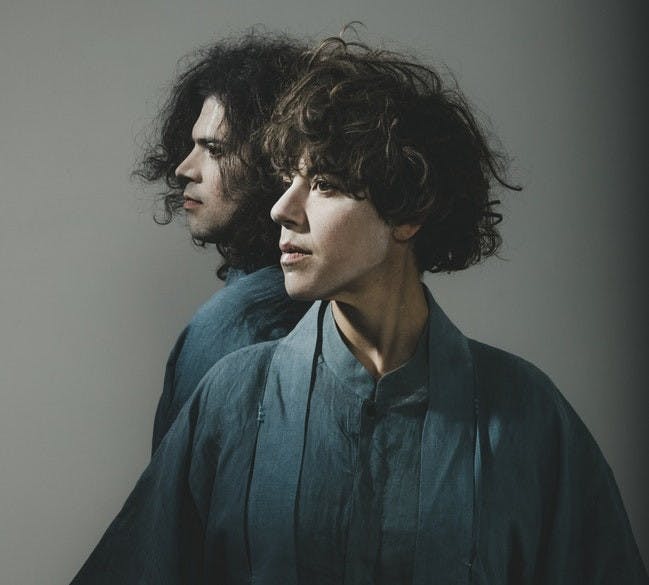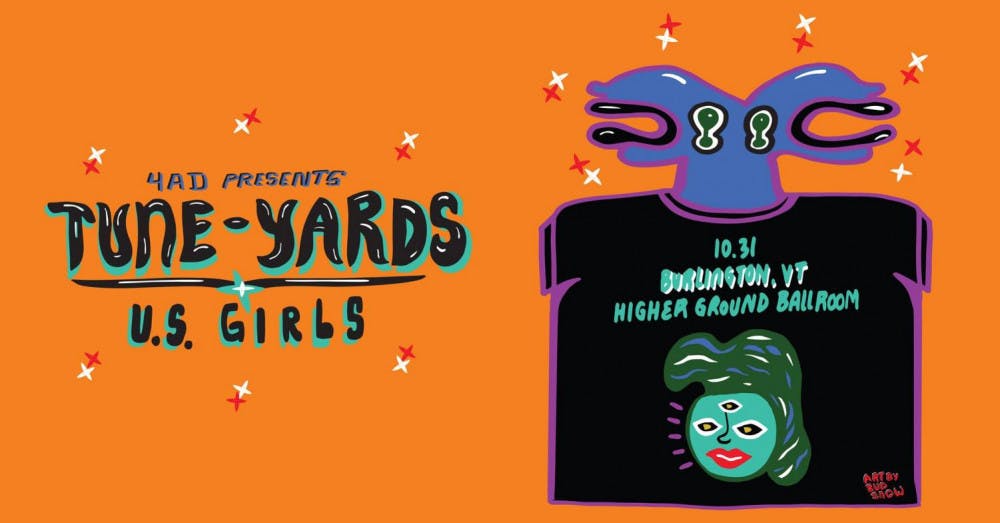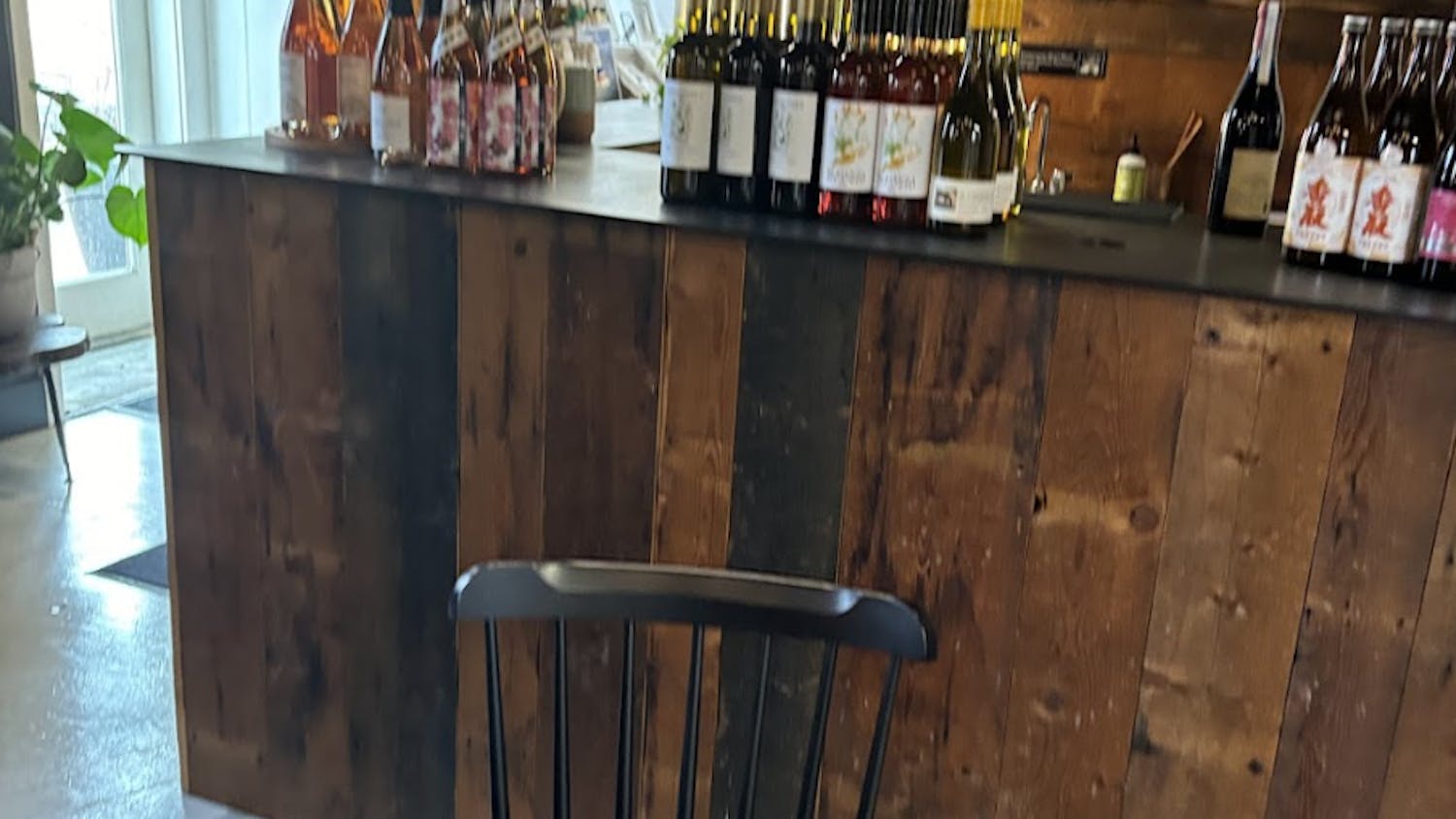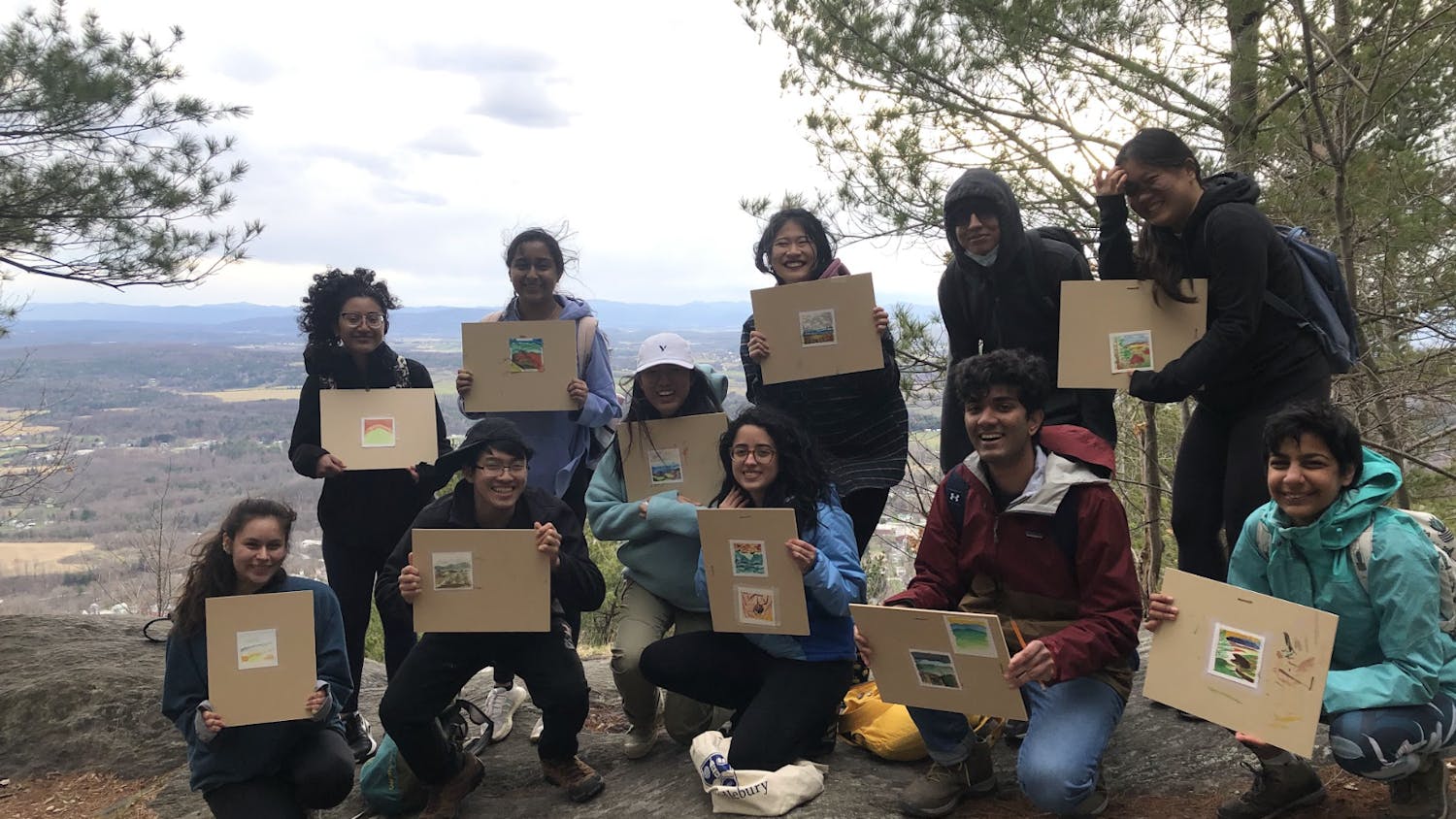Indie bands U.S. Girls and Tune-Yards will play at Higher Ground in South Burlington on Wednesday, Oct. 31st. The concert is U.S. Girls’ first performance at the venue, and Tune-Yards’ second, after their show in August of 2015. Doors open at 7:30 p.m., show starts at 8 p.m. Tickets are $20 in advance, $23 day of show.
No one can call Merrill Garbus — the frontwoman for the indie-pop duo Tune-Yards — unoriginal. Since founding Tune-Yards in 2006, Garbus has written and released four albums that layer field recordings on ukulele riffs and African-inspired percussion. The result? A dynamic, lo-fi sound that’s as innovative as it is gritty and real. In the song “For You,” a ukulele melody fades into a recording of a mother and child talking about fresh blueberries. In “Water Fountain,” rhythmic clapping accompanies a folky refrain, making the song feel like a campfire sing-a-long.
Garbus’ lyrics are as gritty as her dissonant synth chords. A white woman and Smith College grad, Garbus has never shied away from addressing appropriation, racism and colonialism in her songs. In Tune-Yards’ latest album, “I can feel you creep into my private life,” Garbus takes her social commentary one step further, confronting her own whiteness and its relationship to her music. “I use my white woman’s voice to tell stories of travels with African men,” Garbus sings on “Colonizer”, the sixth song in the album. “I smell the blood in my voice.”

The indie-pop duo Tune-Yards, scheduled to play at Higher Ground.
Prior to composing “I can feel you creep,” Garbus set out to educate herself about racism: she attended a six-month anti-racist workshop near her home in Oakland, California, became more involved in the activist network Standing Up for Racial Justice, and studied the works of anti-racist educators. “For me, it reached a crisis point,” she told NPR in an interview about the album, which Tune-Yards released in January on 4AD. “I couldn’t not speak about whiteness in my work.”
Opening for Tune-Yards is U.S. Girls, the experimental-pop solo project of Meghan Remy. While Remy shares Tune-Yard’s affinity for danceable, lo-fi percussion, her style is more nostalgic than it is worldly. Her voice, which often rises into a light falsetto, is crisp and gentle, and coupled with her songs’ muffled guitars and drums, she creates a perfectly dreamy soundscape.
In her latest album, “In a Poem, Unlimited,” released in February, Remy croons about female anger against a backdrop of surf guitar. Her songs trace the romantic escapades of several women, and their lyrics are often poetic and ambiguous. In her song “Pearly Gates,” Remy describes an unwanted sexual encounter while a choir repeats, “Never, never be safe even if you’re in the gates / Give it up, you’re just some man’s daughter.” Other songs depict their subject matter more explicitly. In “Why Do I Lose my Voice When I Have Something to Say,” Remy croaks the revealing title three times.
Of the six studio albums U.S. Girls has released since 2008, “In a Poem” is Remy’s most collaborative. Every song on the album was co-written by Remy and one of two dozen other artists, save for two songs written completely by her collaborators. “In a Poem” is also one of Remy’s most political albums, attacking not only abusive men, but also Barack Obama. In “M.A.H.” Remy sharply criticizes Obama, who she believes represents the United States’ continued wars abroad. Together, the songs of “In a Poem” complete Remy’s brooding, complex perspective on contemporary womanhood in North America and beyond.
More information can be found at www.highergroundmusic.com/event/1714004-tune-yards-south-burlington.
Listen Up! Concert Preview: Tune-Yards and U.S. Girls at Higher Ground

HIGHER GROUND MUSIC FACEBOOK
4AD presents U.S. Girls opening for Tune-Yards.
4AD presents U.S. Girls opening for Tune-Yards.
Higher Ground Music
Comments



